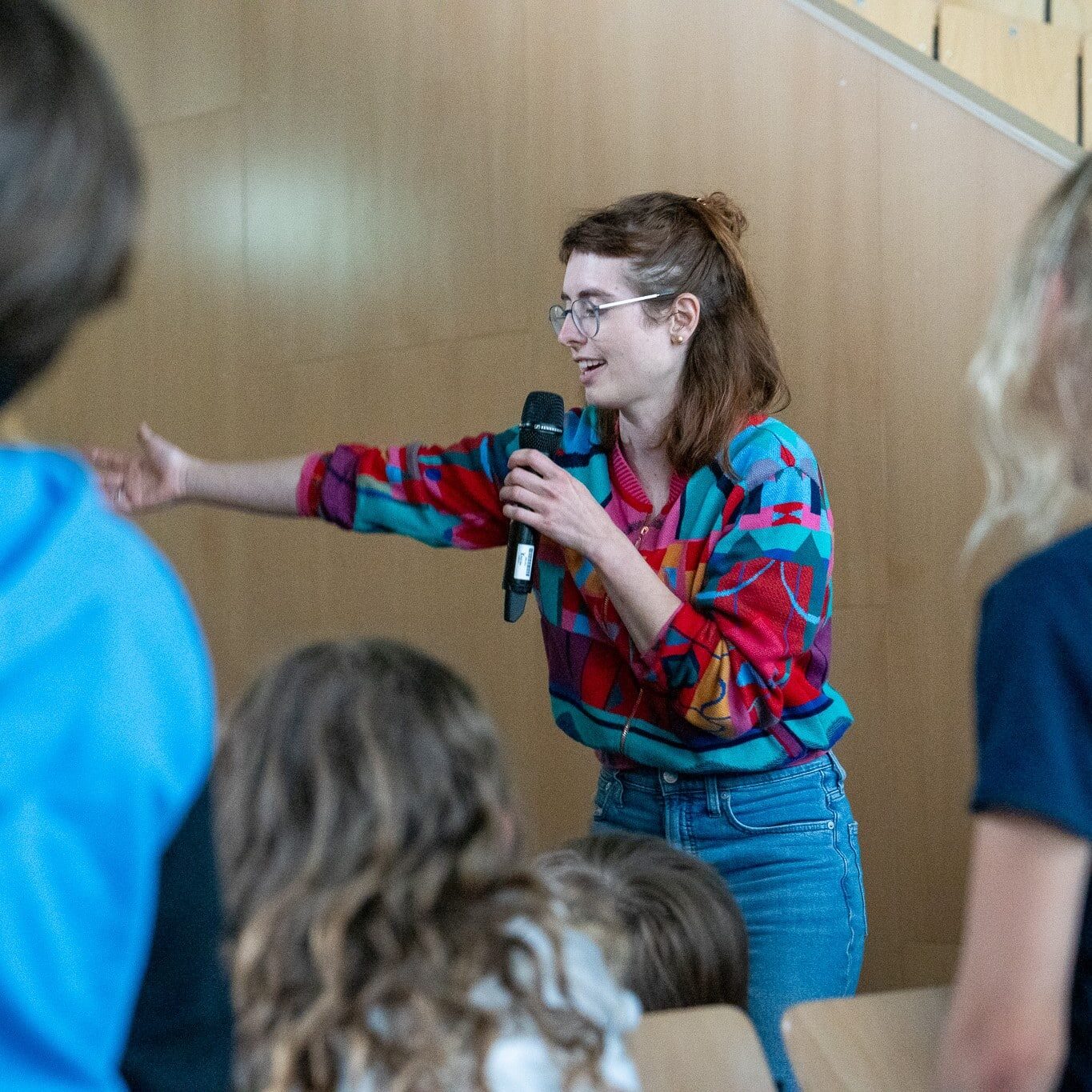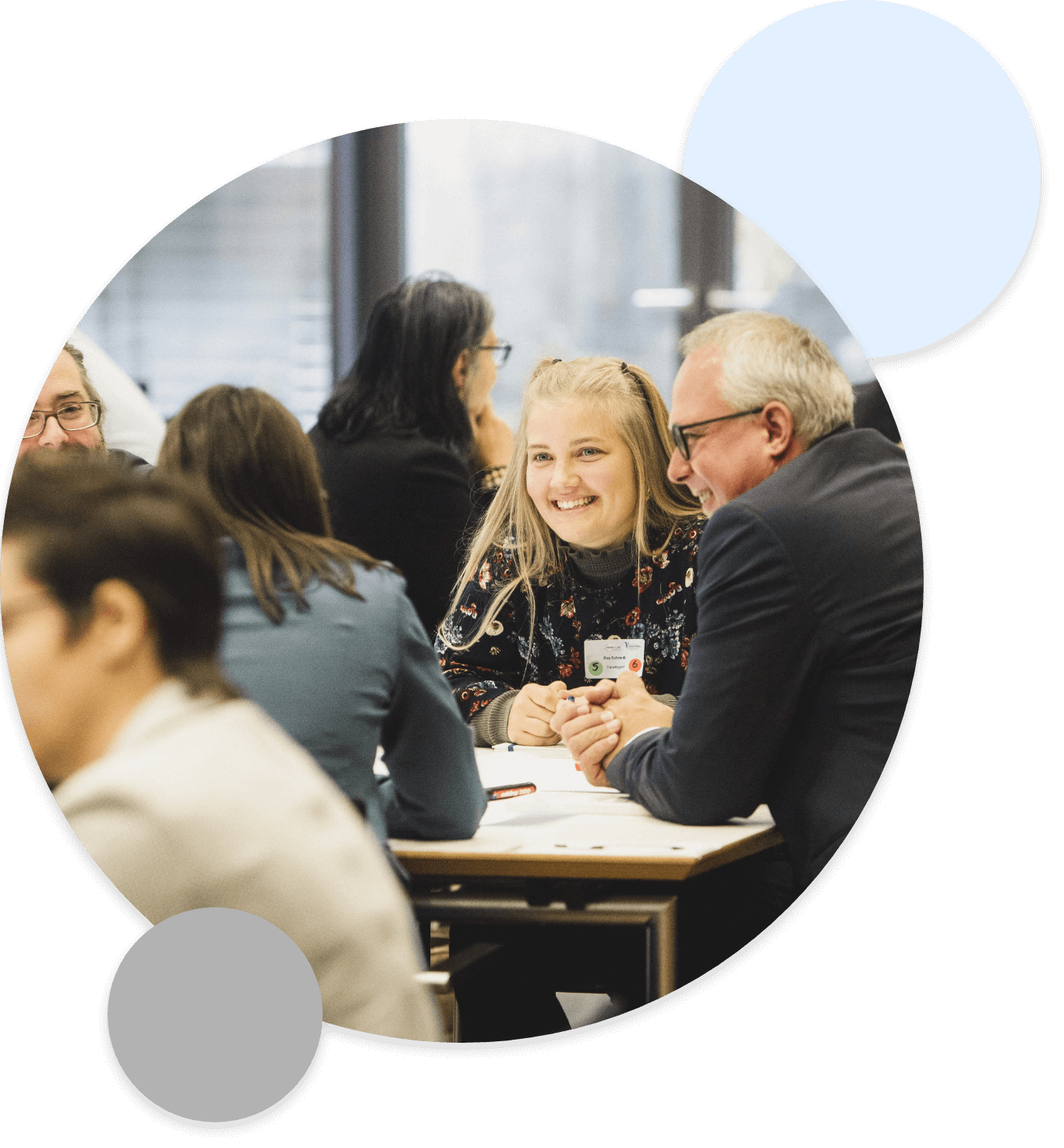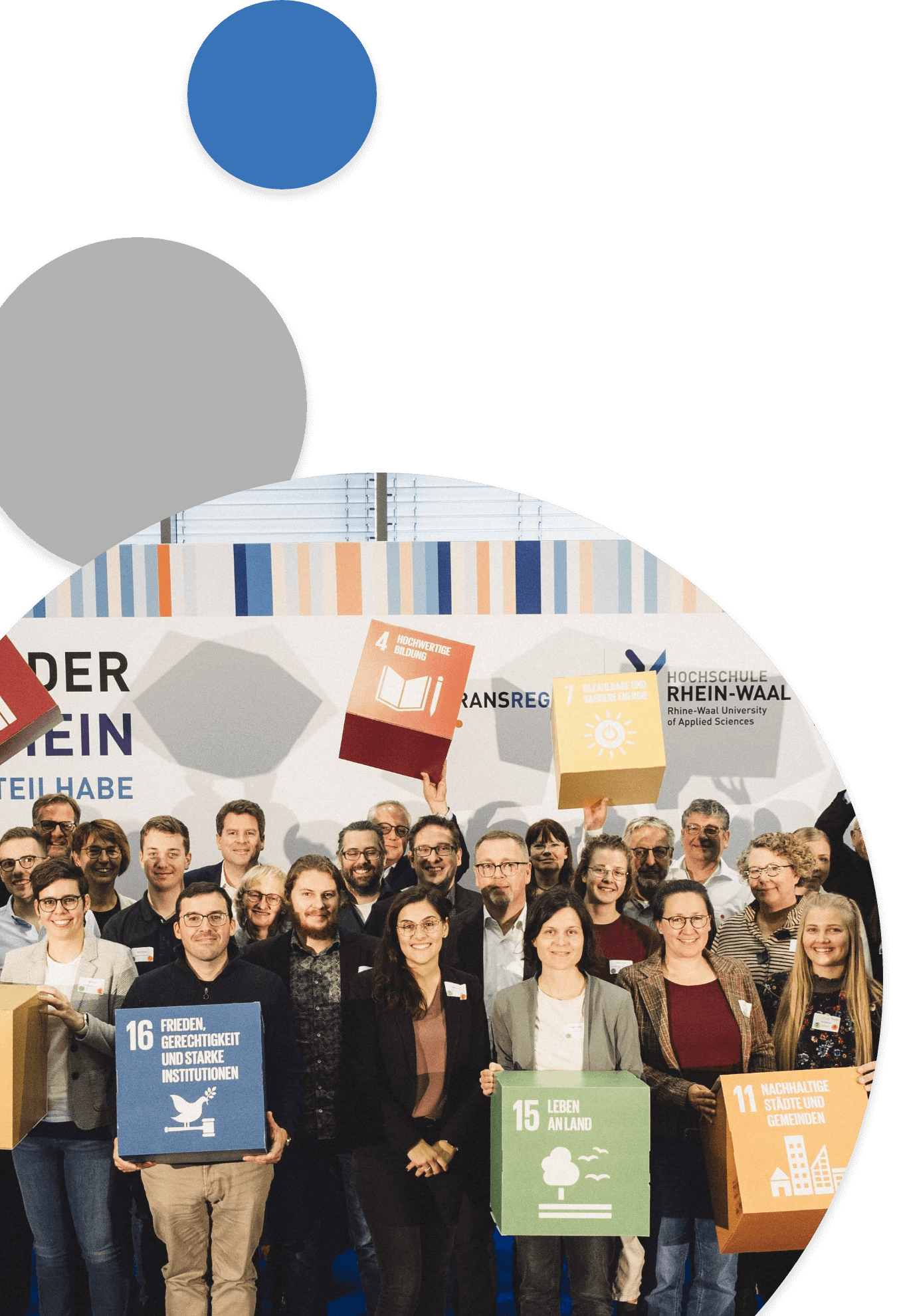
Agroforestry Summer Week at Rhine-Waal University inspires young minds with children’s university
On 3 June 2024, Rhine-Waal University of Applied Sciences opened its doors to curious young minds as part of the Agroforestry Summer Week. Under the guidance of Anna-Lea Ortmann, PhD student in the Agroforestry Living Laboratory of the TransRegINT project, children between the ages of 8 and 12 experienced an introduction to the world of sustainable agriculture.
A bag of rice for plant diversity
The interactive lecture was not only attended by individual families, but also by a third grade class from Johanna Sebus primary school in Kleve. ‘The third year is forming the Ackerklasse this school year,’ explained class teacher Cornelia Feige. Anna-Lea Ortmann captured the attention of the young listeners by vividly explaining the basics of sustainable agriculture. In between, she repeatedly offered the children the opportunity to contribute to the lecture from their own experience. ‘Who has ever been to an orchard?’ and ‘What types of vegetables grow in the school field?’ were just some of the questions that got the pupils’ fingers wagging.

In her lecture, Anna-Lea Ortmann focussed in particular on the innovative concept of agroforestry, which involves combining different agricultural areas such as pasture farming, arable farming and orchards. In this way, ecological diversity and profitability can be combined on one area. Anna-Lea Ortmann interacted with the participants in a playful way, letting children play a sun experiment in which a wide variety of crops were organised according to size and type and demonstrating in an impressive way that every child could experience how big the difference is between the plant species known worldwide (around 250,000) and the most commonly consumed plants (three: rice, wheat, maize). A sack of rice represented all the plant species. In contrast, the three species that provide 60 per cent of food energy were each represented as a grain.
Inspiration for sustainable Development
The visit was not only an opportunity for the children to learn more about sustainable agriculture, but an inspiring experience for everyone involved. The visit emphasised the importance of environmental education and cooperation between society and universities for the sustainable development of the region.
Raising awareness of ecological issues at an early stage
The event showed how important it is to sensitise children to sustainable agriculture at an early age and to arouse their curiosity for ecological topics. The children’s university as part of the Agroforestry Summer Week provided an ideal platform for this and will certainly resonate in the minds of the young participants.




Kommentare